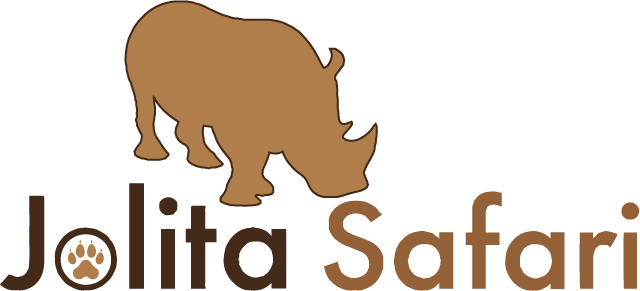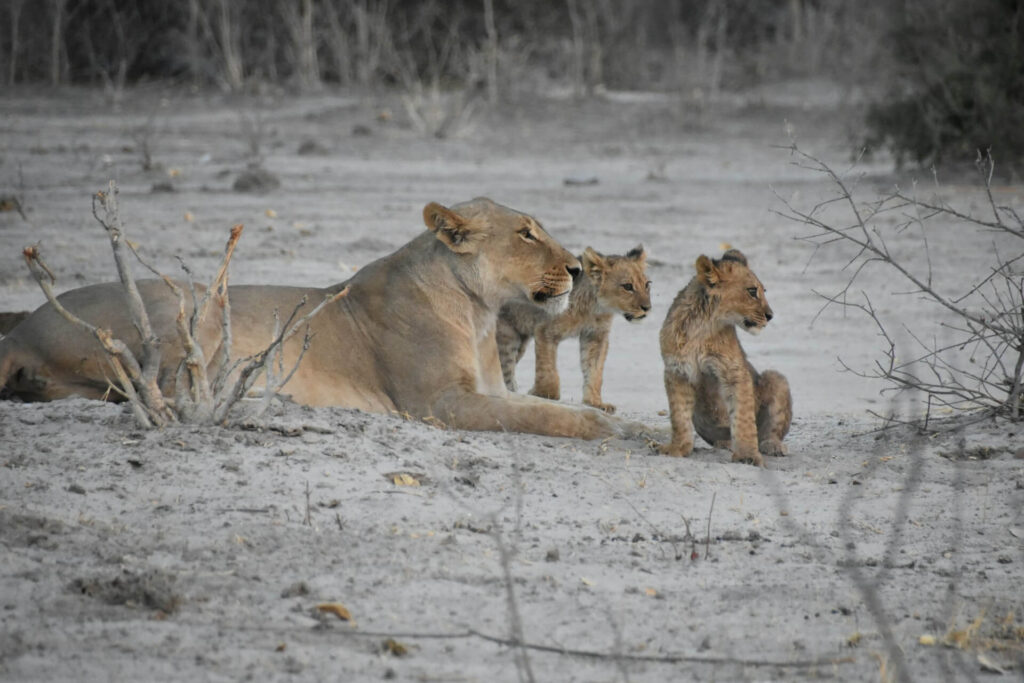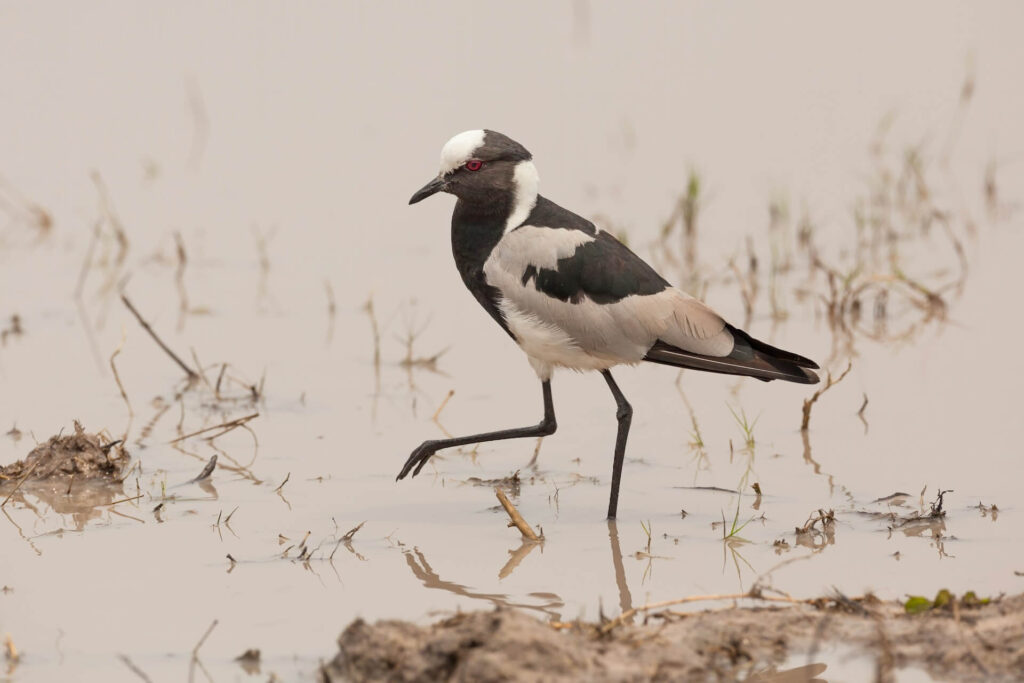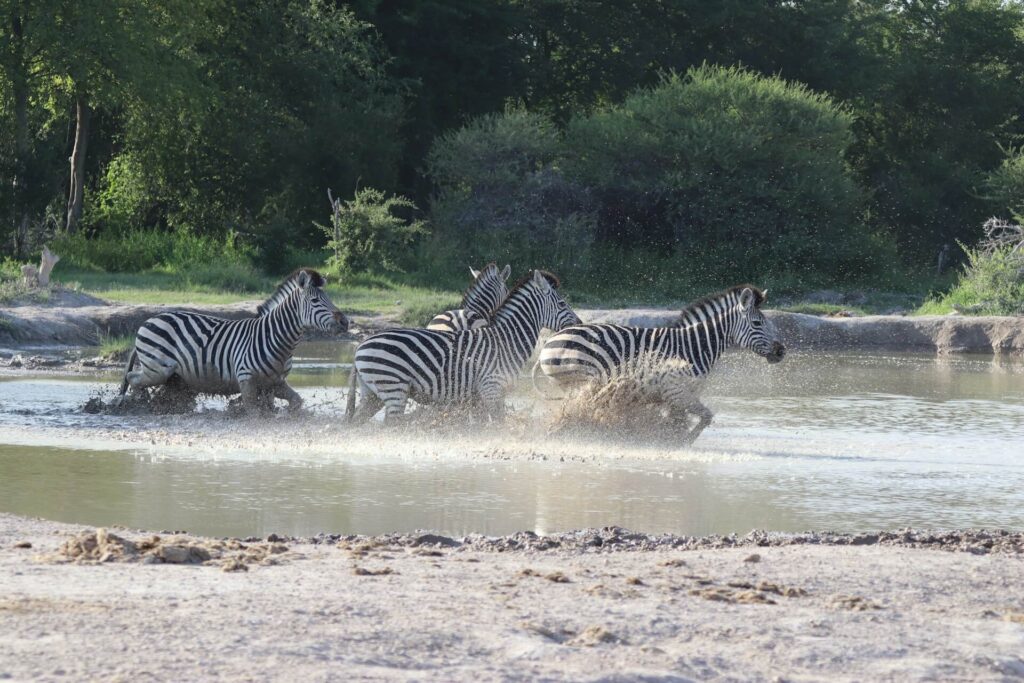Far below your wing tips the brown and barren Kalahari gives way to a miraculous green mosaic. Waters from the far-away mountains of Angola flow 1000km south into Botswana, rushing along old Hippo paths, flowing and filtering through the papyrus swamps and palm groves, fanning out to form channels and islands as it creates the largest and most beautiful oasis in Africa. This is the Okavango Delta.
Enchanting Okavango – Africa’s Garden of Eden
It is hard to imagine a wetland paradise situated in the heart of a Desert, but that is exactly what the amazing Okavango Delta is. Thousands of animals migrate to this veritable paradise each year, and the staggeringly beautiful oasis supports a huge diversity of wildlife. You have the choice of “wet” (from a boat or mokoro), “dry” (traditional game drive), or mixed game viewing. All the Big Five are present, as well as many other unusual animals seldom seen elsewhere, and watching them as they cope with the wet conditions is enthralling – imagine a Lion chase through the water! Come and experience all this for yourself on a breathtaking luxury Okavango Delta Safari.
The Elephants, the Wild Dogs, the Predators and other Highlights of the Delta
The Elephants
The Elephants of Botswana are lucky indeed! There are over 140,000 of these intelligent and social animals roaming the unfenced areas that comprise the Delta, the Chobe National Park, and the other concessions bordering these areas. Although there are always large numbers of elephants in the Delta, many move away to the fringes to graze during the wet summer months (November to March) when food is plentiful. As food becomes scarcer and water dries up, many thousands of Elephants pass through the flooded plains (in the winter months from May to August), following ancient migration routes, and this is the best time of the year to view them in their masses.
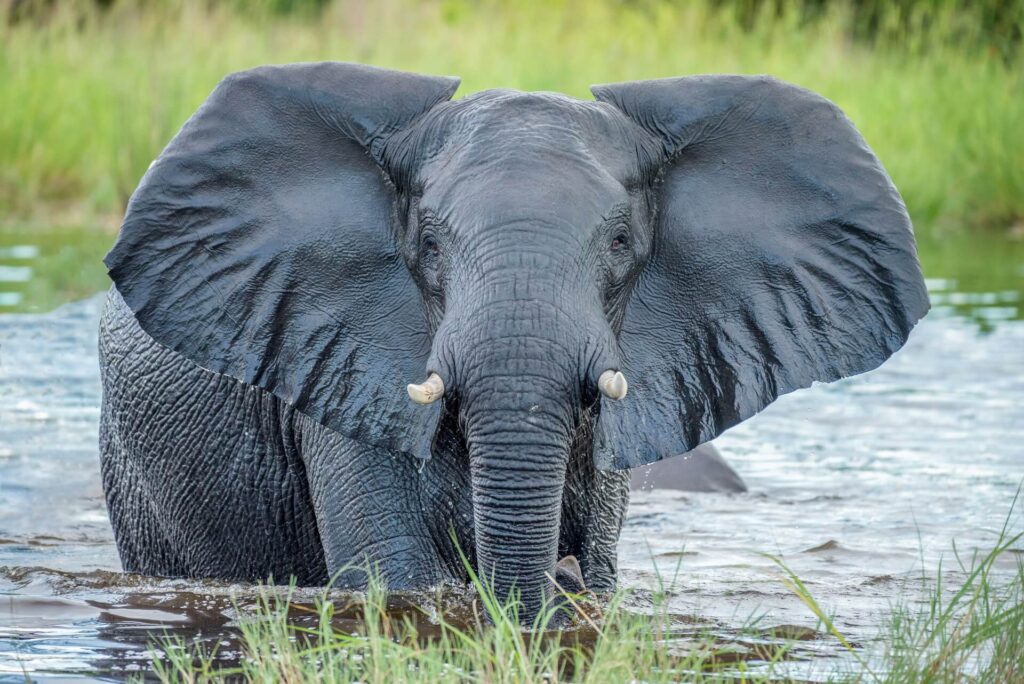
The Wild Dogs
The Delta is also home to the largest population of the highly endangered Wild Dog in Africa. These lethal hunters have adapted to their wet and swampy conditions and use the terrain to their advantage to launch commando-like attacks on their chosen prey – it is incredible to watch the precision from the air (hot-air balloon!!) if you are lucky enough to witness a hunt in progress.
The Predators
Wherever there are large concentrations of game, there will be a contingent of predators on the lookout for their next meal. The Lions of the Okavango Delta are quite at home here, and although they sometimes appear to be reluctant swimmers, they use the unique conditions to their own advantage and have learnt to hunt by stealth instead of speed, hiding in the long grass at the waters’ edge and waiting for dinner to come to them! There are also many leopards, cheetahs, hyena,s and jackals.
Mokoro Safaris
In the Okavango Delta, one of the highlights is the “wet” game viewing from a mokoro, a type of canoe traditionally hollowed out from a single tree-trunk and poled through the shallow water by your African-style gondolier! This is a really thrilling way to see the wonderful secret places of the delta; you drift silently past a startled antelope, bathing elephant or lurking crocodile, and the uncertainty of what you may find around the next corner will get your heart racing.
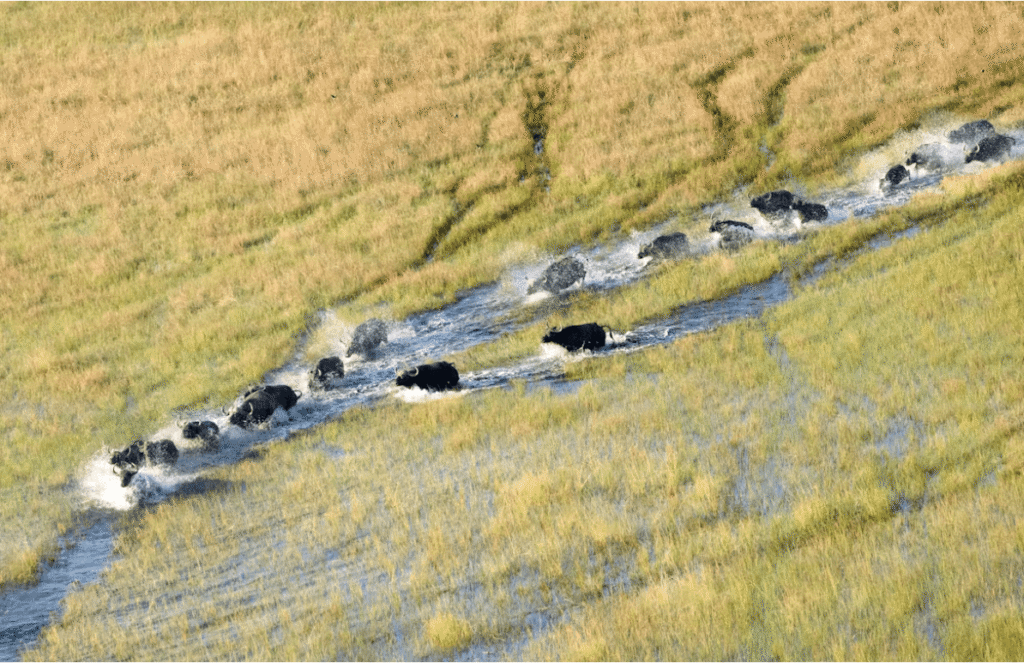
The Hippos
Africa’s most dangerous animal, the Hippo is responsible for more human fatalities than all the other animals put together. They are present in the Delta in large numbers, wallowing, snorting, and generally adding their own unique chorus to the sounds of the wild; watching them from the water adds another dimension.
The Birdlife
More than 500 species of birds have been recorded, including residents and migrants, making this one of the Continent’s most rewarding bird-watching destinations. As the isolated pools in the Delta start to dry out each year, many fish are trapped in the shallow waters, and then the birds move in to feast!
Safaris in the Okavango Delta
To really get a good overview of the Delta and the incredible wildlife of Botswana, you should choose a Safari that includes a number of different areas and Lodges, or better yet, if you have the time, include several different Parks and Reserves. Many people combine the Okavango Delta with Chobe Game Reserve, Moremi and Savuti, for instance, for the game viewing adventure of a lifetime. You could spend anything from 3 or 4 days to a couple of weeks here and experience both “wet” and “dry” game viewing.
Other Activities
Hot-Air Ballooning
One of the most incredible ways to get a perspective of the scale of the Delta is to take to the skies on a Hot-air balloon excursion. As you drift silently over the plains you will marvel at the incredible colours of the Delta – blue, almost purple water combines in many shades of green, gold and orange in one of the most beautiful natural tapestries you will ever see.
Walking Trails
Several of the Lodges offer walking trails with experienced and knowledgeable local guides who have lived in the Delta all their lives and know it like the palm of their hand – a great opportunity to commune with both nature and the amazing people of Botswana.
Mokoro Camping Excursions
Depending on which lodge you stay in, it may be possible to go on an extended camping expedition by mokoro, into the furthest reaches of the Delta – an unforgettable experience for the intrepid adventurer.
Fishing
The Delta is a paradise for fishermen, too! The waters are brimming with many fish species, including Yellow Fish and Tiger Fish. The annual Barbel run occurs each year from August to October when vast shoals of these fish make their way down the river, voraciously chased by the Tiger Fish, a great time for sports-fishing enthusiasts to visit.
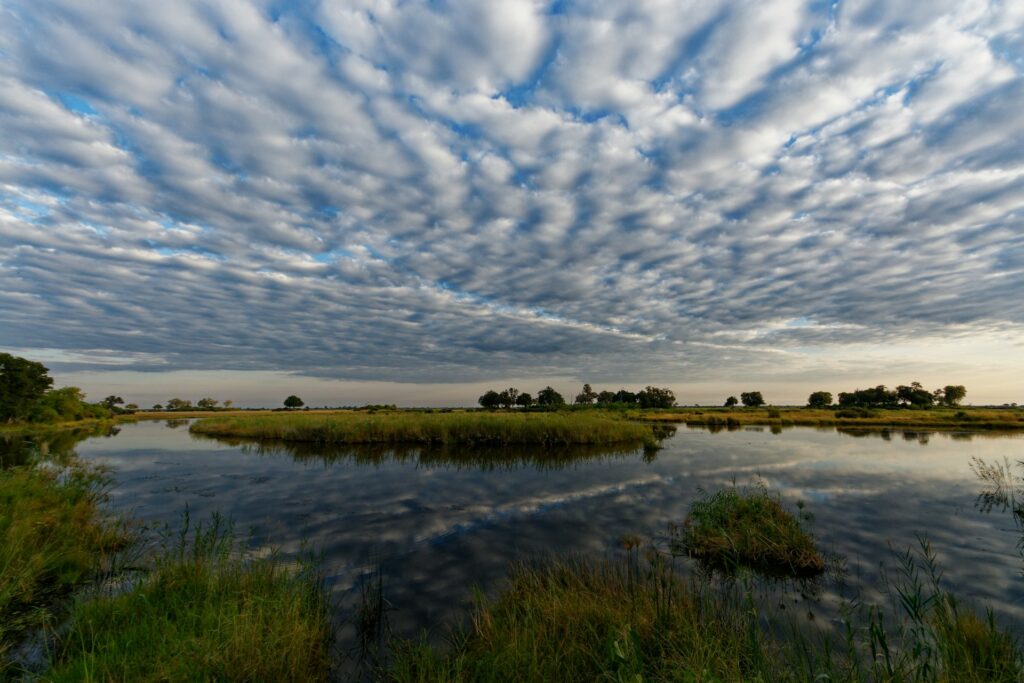
Accommodation in the Okavango Delta
The Delta covers an enormous area, and consequently, there are dozens of Lodges and Camps to choose from. The lodges fall into 3 categories – there are predominantly land-based lodges which focus on conventional game drives and offer water activities only during the high-water season when the Delta is flooded. The water-based camps are set on permanent water and offer water activities all year round, but may not be able to offer game drives during the wet months. Of course, there are many Lodges that admirably combine both options, and Jolita Safari will be able to advise you on which combination of Lodges is perfect for your special interests.
How to Get There
All Safaris to the Delta start in Maun, in the Kalahari. You can get to Maun on scheduled flights from Johannesburg on South African Airways or Air Botswana, as well as from Gaborone, Livingstone, and Windhoek. The quick and scenic way to get into the Delta is by private chartered plane and most of the lodges have their own airstrips. You can also reach some of the camps by 4X4 from Maun, which takes about 5 hours.
Best Time to Visit
The Delta is a year-round destination. The floods usually arrive from July to August, and this is when the “wet” viewing is at its best. Anglers may want to visit from August to October to enjoy the Barbel run, while birders may prefer to visit in summer, November to March, when all the migratory birds are in the Delta.
